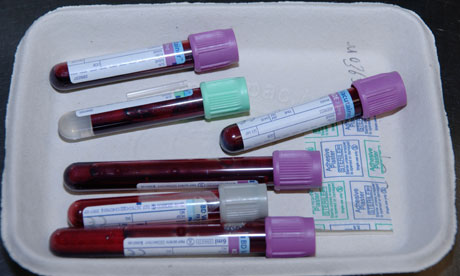
The dilemma
One in four people with HIV do not know they are infected, says the Health Protection Agency (HPA) in its annual report on HIV in the UK. There are 91,500 people living with HIV which means around 23,000 of us don't know we are infected. Could you be one of them?
The HPA says that the undiagnosed are made up of men who have sex with men (26%), heterosexual men (26%), heterosexual women (21%) and people who inject drugs (21%). It warns that more than half of those tested in 2010 had been infected with HIV for some time before they were diagnosed. A late diagnosis is identified by low CD4 cell counts (a type of immune cell) – less than 350 cells per mm3 of blood. It is also associated with a worse outcome: two thirds of those 680 people who died from HIV in 2010 were diagnosed late.
But not being tested doesn't just affect you. It also means you could pass HIV on to another unsuspecting person. So should you pop along to your local sexual health clinic? And do you still have to have extensive counselling beforehand and wait two weeks to get the results?
The solution
The HPA doesn't advise that everyone should rush out to have an HIV test but it does say that tests should be offered to everyone attending sexual health clinics (because they are more likely to have had unprotected sex). However one in five people offered an HIV test at a sexual health clinic refuses to have it. The HPA suggests that HIV tests should be more routinely offered, for example to new patients at GP practices and those admitted to hospital in parts of the UK where the levels of HIV infection are high.
The Terrence Higgins Trust says that 1 in 11 gay men in London have HIV, falling to 1 in 20 nationwide. Genevieve Edwards, its director of health improvement, says that half of all new diagnoses in 2010 were in heterosexuals, of which 42% of the infections were acquired in Africa. But, she says, more than 1,000 heterosexuals were infected in the UK last year and this has doubled in the past decade. Heterosexuals are less likely to think they're at risk of infection, which explains why they are more likely to be diagnosed late as shown by low CD4 cell counts – 66% of men and 59% of women who are heterosexual and infected are diagnosed late.
"If you're sexually active I can't see a reason why you'd say no to being tested," says Edwards. "If you are diagnosed early and treated you can have a nearly normal lifespan." She cites the triumph of routine antenatal testing for almost eliminating babies being born with HIV (babies are treated before and after birth and delivered by a "bloodless" caesarean section). You don't even have to wait for the results now. The Terence Higgins Trust offers a finger-prick test that can diagnose HIV within 15 minutes. The Trust's website has a link to local testing sites.
The benefit of being tested is that not only can you have effective treatment sooner that increases your likelihood of a long life, but you can protect the people you have sex with. The HPA recommends that high-risk groups, eg men who have sex with men, should be tested annually. If you are low risk then you don't need to rush out and get tested. But if you have been worrying that you could be infected you should know that it doesn't cost anything to get tested and that you can get treatments that work.

